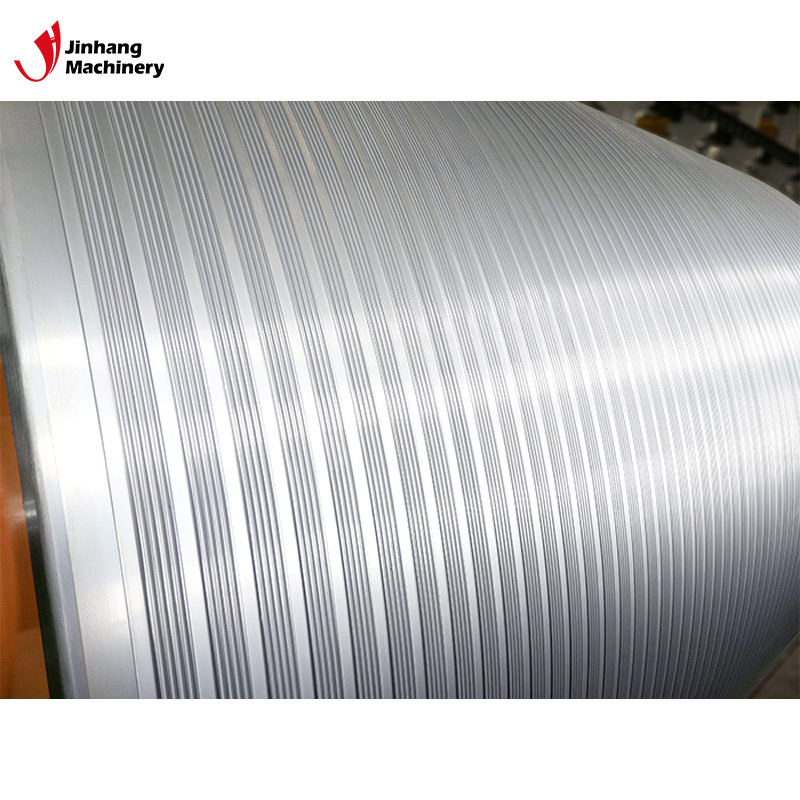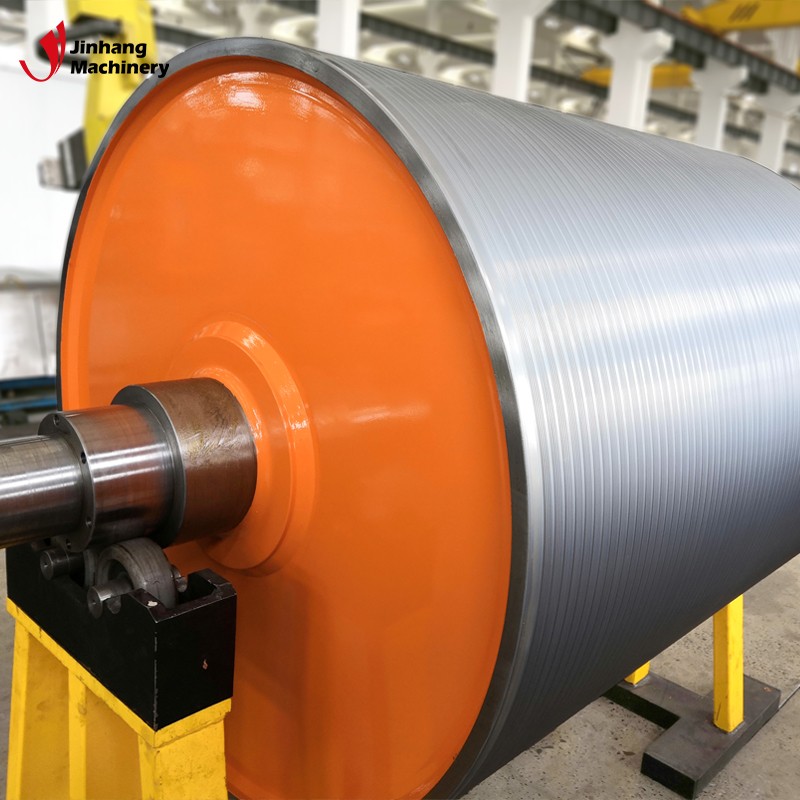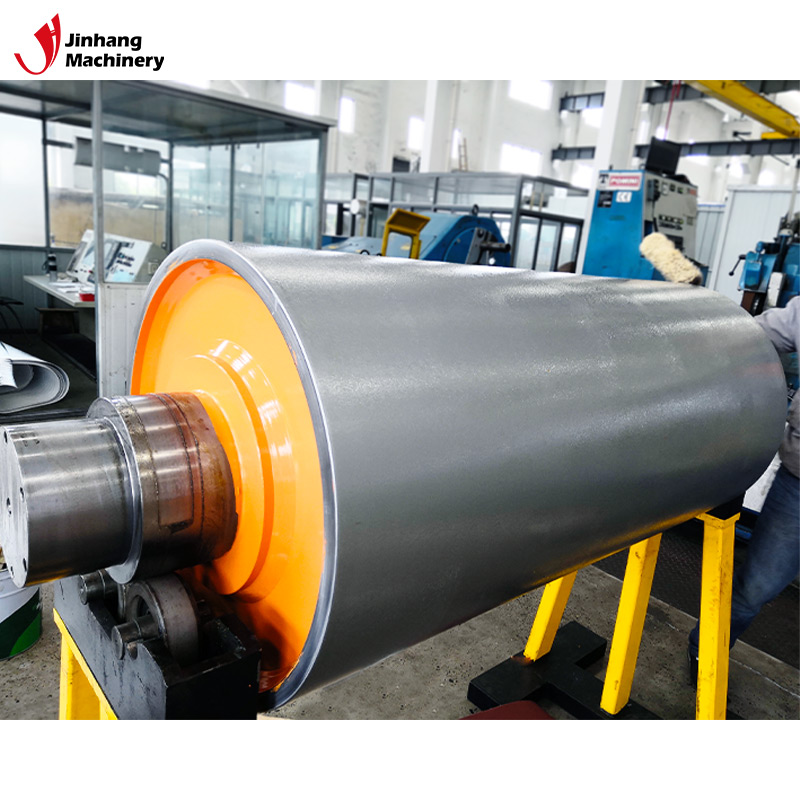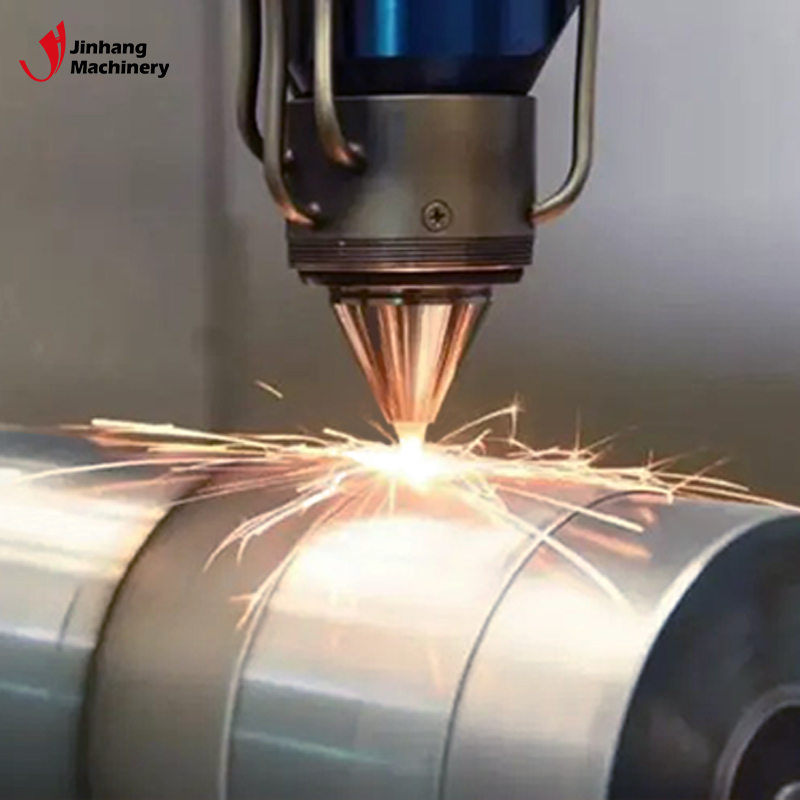Độ cứng của lớp mạ crom trên con lăn crom công nghiệp là bao nhiêu?
Industrial chrome rollers play a vital role in the manufacturing industry, especially in those production processes that require high precision, wear resistance and corrosion resistance. The hardness of the chrome coating is a key factor affecting the performance of chrome rollers, which directly determines its durability and efficiency in practical applications. So, what is the hardness of the chrome coating of industrial chrome rollers? This article will explore this issue in detail and explain the importance of the hardness of the chrome coating for industrial applications.

What does the hardness of the chrome coating mean?
Hardness is the ability of a material to resist local deformation, usually measured by its ability to resist indentation or scratching by hard objects. In the field of metal materials, hardness is a key indicator for evaluating the wear resistance, scratch resistance and compression resistance of materials. The higher the hardness, the better the material can maintain its shape and size under mechanical stress, thereby extending its service life.
What are the hardness characteristics of the chrome coating?
The chrome coating is a thin layer deposited on the metal surface by an electroplating process, and its main component is metallic chromium. Chromium has an extremely high hardness and is usually at the forefront of all metal materials. It is precisely because of this high hardness that chrome plating is widely used in industrial fields that require high wear resistance and high pressure resistance. The hardness of the chrome plating layer not only improves the wear resistance of the substrate, but also provides it with good corrosion protection.

What is the hardness of the chrome plating layer of industrial chrome-plated rollers?
Standard hardness of industrial chrome plating layer
The hardness of the chrome plating layer of industrial chrome-plated rollers is usually between 800 and 1000 Vickers hardness (HV). This hardness range depends on the specific conditions of the chrome plating process, including current density, temperature, plating solution composition, etc. By adjusting these parameters, the hardness of the chrome plating layer can be adjusted within a certain range to meet different industrial needs.
● Low hardness chrome plating layer (< 800 HV): Usually used in applications that require a certain toughness but do not require extremely high wear resistance, such as certain types of rollers or bearings.
● Medium hardness chrome plating layer (800-1000 HV): This is the common hardness range of most industrial chrome-plated rollers, suitable for environments that require high wear resistance and high pressure resistance, such as rollers in the printing, textile and paper industries.
● High hardness chrome layer (ssshhh 1000 HV): Usually used in applications under extreme conditions, such as rollers in high temperature, high pressure or highly corrosive environments.
What factors affect the hardness of the chrome layer?
The hardness of the chrome layer depends not only on the material itself, but also on multiple factors, including:
● Current density: Higher current density usually leads to increased hardness of the chrome layer, because higher current density accelerates the deposition of chromium and forms a denser crystal structure.
● Temperature: During the chrome plating process, the temperature of the plating solution also affects the hardness of the chrome layer. Generally speaking, higher temperatures can increase the hardness of the chrome layer, but too high a temperature may cause the coating to become brittle.
● Plating solution composition: The chemical composition ratio in the plating solution also affects the hardness of the chrome layer. For example, the concentration of sulfuric acid, the content of chlorides, etc. will affect the final hardness.
What is the impact of the hardness of the chrome layer on industrial applications?
The relationship between hardness and wear resistance
Hardness is an important indicator to measure the wear resistance of a material. For industrial chrome-plated rollers, higher hardness means higher wear resistance, which is especially important in applications that require long-term continuous friction. For example, in the papermaking industry, paper is constantly in contact with the surface of the roller during high-speed operation. If the surface hardness of the roller is not enough, it is very easy to cause surface wear, thus affecting production quality and efficiency.
Relationship between hardness and corrosion resistance
Although hardness is not completely correlated with corrosion resistance, chrome plating with higher hardness usually has a denser surface structure, which helps to prevent the intrusion of corrosive substances. Therefore, in environments such as chemical and food processing that need to prevent corrosion, high-hardness chrome plating can provide better protection.
Relationship between hardness and surface finish
The hardness of the chrome plating also affects its surface finish. Harder chrome plating can achieve a higher finish during polishing, which is very important for applications that require high precision and high surface finish (such as printing rollers).
Balance between hardness and toughness
Although high hardness is usually an advantage of industrial chrome rollers, too high hardness can also cause embrittlement of the material and reduce its toughness. Chrome plating with insufficient toughness may crack or peel off when subjected to impact or severe vibration. Therefore, in practical applications, it is necessary to find a proper balance between hardness and toughness to ensure the reliability of the chrome plating during use.

How to measure the hardness of the chrome plating?
Vickers Hardness Test
The Vickers Hardness Test is one of the common methods for measuring the hardness of chrome plating. The test calculates the hardness value by using a diamond indenter to press into the surface of the chrome plating under a certain load, and then measuring the diagonal length of the indentation. The advantage of the Vickers hardness test is that it is applicable to a wide range of hardness and can measure the hardness of thin materials.
Rockwell Hardness Test
The Rockwell Hardness Test is another common hardness measurement method that is suitable for thicker chrome plating. The test uses a carbide ball or diamond cone as an indenter to press into the surface of the chrome plating under a certain load. By measuring the indentation depth, the Rockwell hardness test can quickly and effectively evaluate the hardness of the chrome plating.
Microhardness Test
The Microhardness Test is suitable for measuring extremely thin chrome plating and is usually used to detect the hardness distribution of the chrome plating at a microscopic scale. This test uses very small loads and precise measuring instruments to detect tiny areas on the surface of the chrome layer, providing more accurate hardness data.

How to improve the hardness of the chrome layer?
Optimizing the chrome plating process
The most direct way to improve the hardness of the chrome layer is to optimize the electroplating process. By adjusting parameters such as current density, temperature, and plating solution composition, the hardness of the chrome layer can be effectively improved. At the same time, the use of multi-layer chrome plating technology can also further enhance the hardness and durability of the chrome layer.
Heat treatment process
Heat treatment is an effective way to improve the hardness of the chrome layer. By properly heating and cooling the chrome layer, its crystal structure can be changed, thereby increasing the hardness. However, during the heat treatment process, it is necessary to pay attention to controlling the temperature to avoid embrittlement or other physical damage to the chrome layer.
Adding a strengthening agent
Adding a certain amount of strengthening agent, such as a hardener or surfactant, to the plating solution can change the structure and composition of the chrome layer, thereby increasing its hardness. This method can effectively improve the hardness of the chrome layer without significantly changing other process conditions.
Looking for a reliable roll manufacturer in China? JH Machinery, established in 2001, delivers top-quality industrial rolls tailored to meet diverse requirements. With ISO9001 certification and a well-equipped factory, we specialize in producing rolls such as mirror rolls, chrome-plated rolls, and polyurethane rolls. Our products are widely used in industries like metallurgy, lithium battery production, and automotive testing. Buy directly from our factory at competitive prices and enjoy exceptional service. Request a quote now!
